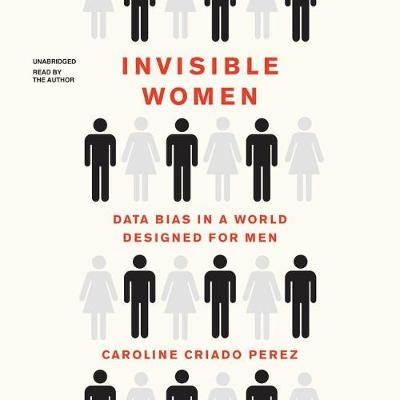Reviewed by Briana @ Pages Unbound on
Some of the information seems a bit frivolous or unimportant. I am always cold (and frankly sick of being always cold and then being told to wear a sweater, as if it’s normal to dress like a skier inside in summer, or as if my comfort is less important than other people’s, usually men). But on some level, I do accept I just have to “deal with it,” that it’s somehow my personal problem that I’m always cold. The research presented here helps me feel vindicated, but at the end of the day, I just shiver and put on my sweater. However, the more the book goes on, the darker and more depressing it gets. It turns out that women aren’t overlooked just when it comes to setting the air conditioner. They are overlooked literally everywhere, on public transportation, in politics, in chemical safety testing, in designs for safety equipment for the police and the military, in workplace polices, in public planning for available restrooms. Everywhere. If you think women are doing alright and generally being treated equally in your country, even if there is some room for improvement here and there, this book will make you think again.
I’ve talked to some men who seemed defensive about the information presented in the book, but Criado Perez emphasizes that, in most cases, the overlooking of women is not necessarily malicious or overtly sexist. It’s just that when people hear the term “average person,” they imagine a man and go from there. Office temperatures are comfortable for the average man. Piano keys are designed for the average man. Car safety features are designed for the average man. City buses are convenient for the average man. But none of these things work nearly as for women and acknowledging that is the first step to changing. The itself book is also filled with examples of men who refused to believe evidence presented to them that things needed to change because the issues didn’t affect them, and that’s incredibly frustrating. However, there’s enough data and references to studies in the book that Criado Perez will be convincing to anyone who has an open mind, and I hope those people aren’t only women.
This is a book I really recommend that everyone read. It is eye-opening. I found the whole thing very readable and got through it in a matter of days, but you can also go through it and read chapters about topics that particularly interest you. Then go buy copies for everyone you know and try to change the world.
Reading updates
- Started reading
- 4 April, 2019: Finished reading
- 4 April, 2019: Reviewed
